'I wish I could've seen more outside of Petersburg, Kentucky' (part 1)
It was her biggest regret in life. This is the true story of a woman who lived for everyone but herself. Plus, the unreleased song inspired by her story, "Alaska."
My family history and its patterns have echoed through generations, like refrains in an old folk song. For the women before me, family duty was a virtue that dictated their days. But even the most dutiful hearts carry their own dreams.
This is the story of an older generation, of hands busy with putting food on the table and attending to everyone's needs but their own. And how one brief adventure inspired not just a song, but my own journey of breaking free from expectations.
I'd like to begin by introducing the central figure of this story, Donna Jean Nixon — my Gran.
Born in Rising Sun, Indiana right after the Great Depression, Donna's family was dirt poor. When her parents divorced, all 12 kids were split up. Donna was sent to live with her father, and farming took priority over school. If any of them got into trouble, or came home too late, Donna’s dad would simply lock them out of the house. They spent countless nights sleeping on haystacks in the freezing barn.
One day, she went to a nearby river town to run an errand, and she noticed a handsome man walking out of the bank. "Wow, he must be rich," she thought. She was too shy to say hello, but luckily, he came over and struck up a conversation.
Alfred McWethy, my grandfather, did not have a penny in his pocket.
Al's father died young. He had worked at the paper mill, which was full of asbestos. He became miserably sick, bound to a wheelchair, and passed away in a matter of weeks. Al’s widowed mother struggled to find work as a seamstress. Days passed without any food to eat, and Al ached from hunger and cold. To survive, he taught himself how to hunt and fish. His mom would cook up whatever he could get — squirrels, rabbits, ducks, catfish, river bass, and blue gill.
As soon as he turned 15, Al got a job at Seagram's Distillery, where he loaded boxcars with cases of whiskey. He'd lied and said he was older just to get the job. He swore no matter what, he'd never let his own children feel that deep, aching hunger. So, outside of work, he continued hunting. He became a local legend, known as "The Great Duck Hunter."
Al was 21 and Donna was 17 when they got married. They raised their children in Petersburg, Kentucky — Al’s birthplace. Population, 500.
Soon, Donna became quite the local legend herself. Everyone in town was well aware of her deep-fried chicken and baked apple pie.
It was real simple, country living. My mom, Peggy, was the last of their litter.
Al’s childhood made him who he was. He never forgot about that hunger, and he was set on his role of providing food for the family. As a father, he wasn't interested in spending quality time together. He wasn't in the business of teaching his kids anything outside of hunting and fishing. His only prerogative was putting food on the table, and that was that.
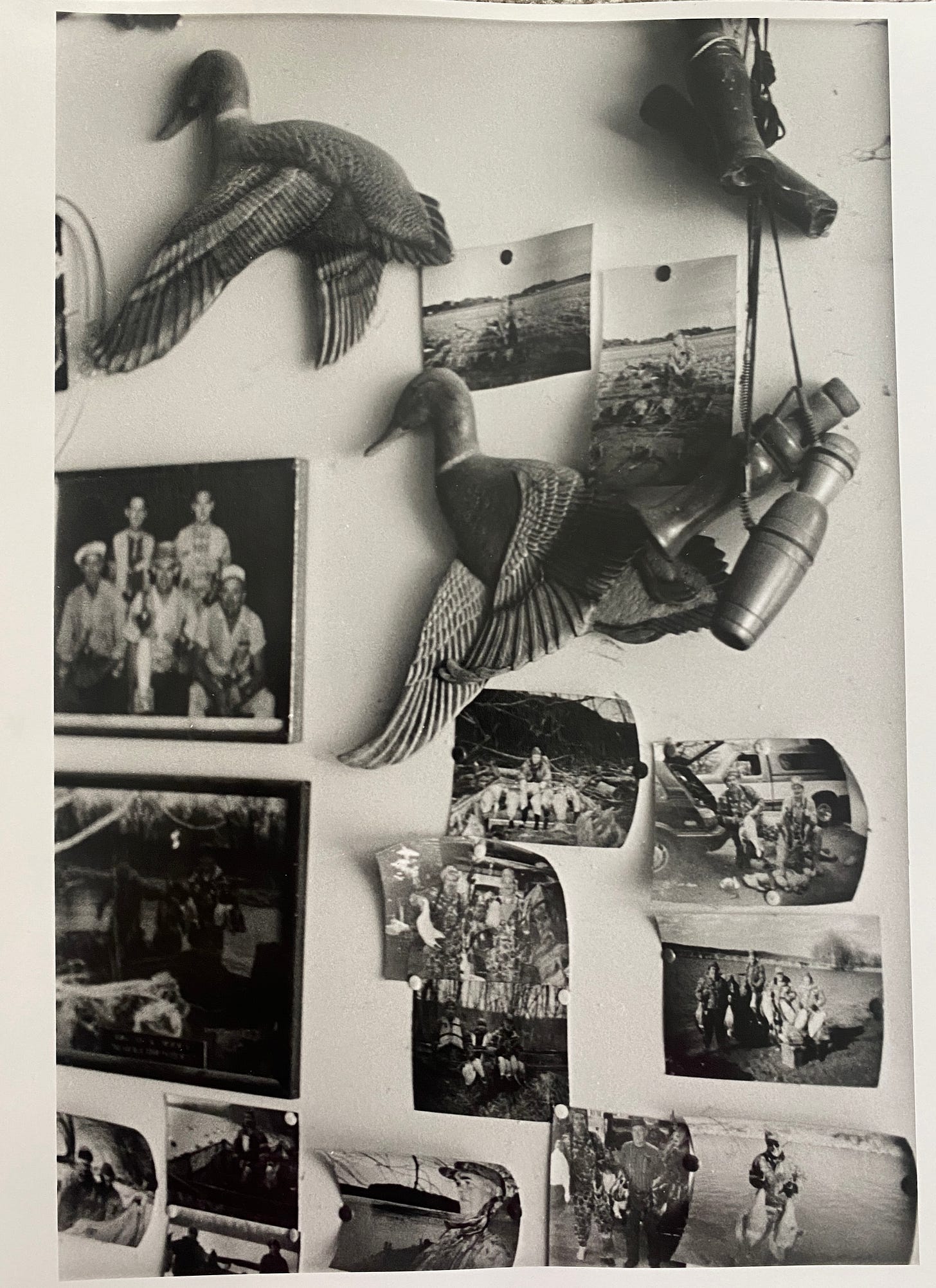
Al was a stubborn man. He was a homebody and hated leaving Petersburg. Every year, he’d get 6-weeks of vacation, and every year, he’d spend it hunting with his buddies around town.
Only once did he take his family on a holiday. They took off to the Grand Canyon in an old pickup truck. With 4 kids smushed in the back, the excruciating desert heat, and 26 hours of endless highway, Al refused to turn on the AC to “save gas money.” My mom said it was the sweatiest, most awful road trip, and they never went on a family holiday ever again.
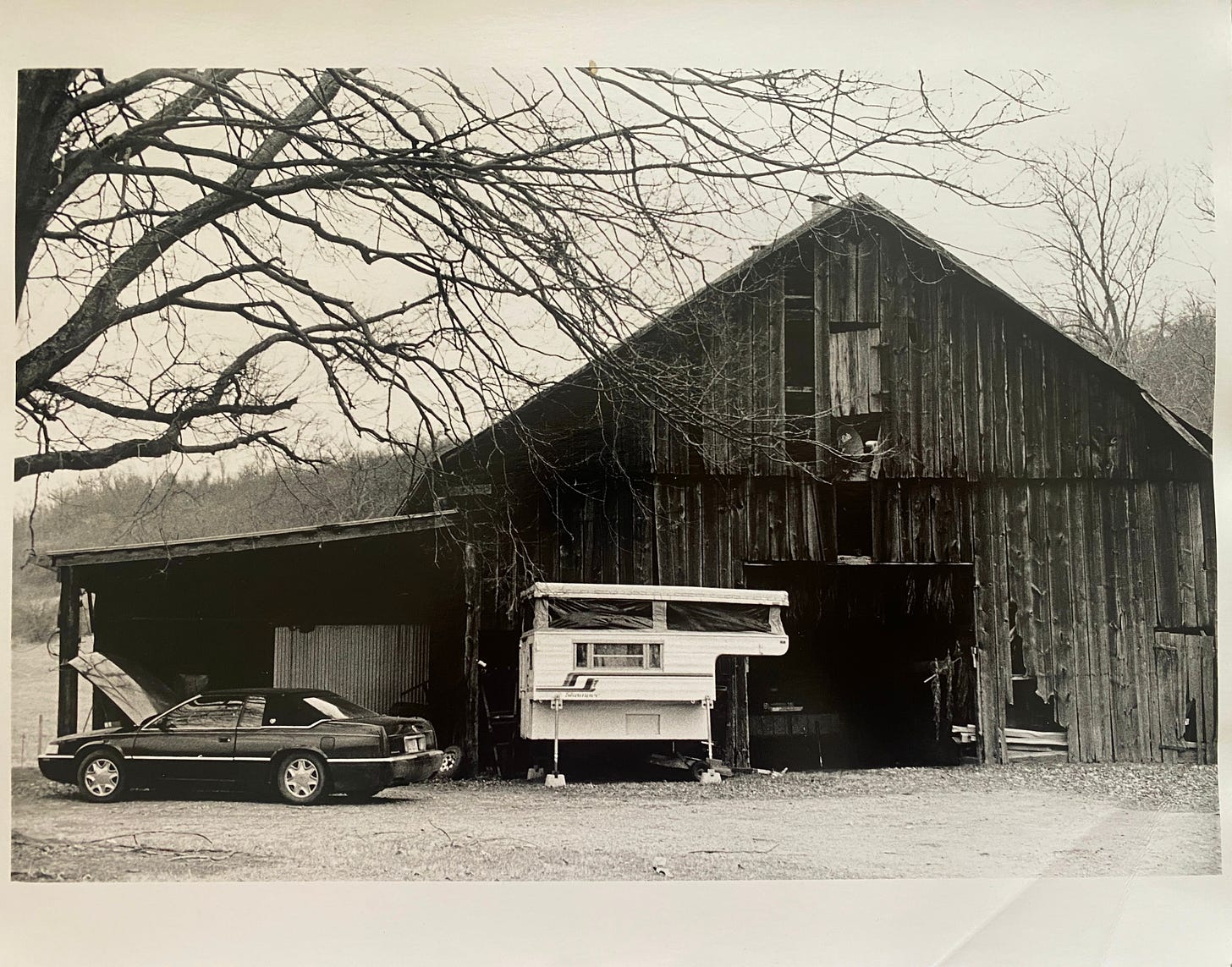
Growing up, my mom wanted out of Petersburg — bad. She worked hard at school and earned a scholarship. She became the only one in her family to attend university. When she graduated with flying colors, her dad didn’t come to the ceremony. Instead, Al chose to go to work so he could earn overtime pay.
Today, when I think of Al, my Poppy, I think of how he’d always tell us to get away from the TV so he could see whatever sports game was on. I can’t say we ever had a meaningful conversation. I was a granddaughter, so he never took much interest in me. He never taught me to hunt or took me out fishing like he did with his grandsons. These are just observations, and I hold no hard feelings. I still respect what he did to care for his family.
But when I think of my grandma, Donna, I think of her loving hands.
Pulling fresh strawberries out of her garden or snapping the ends off fresh green beans. Quilting, crocheting, knitting, or embroidering Winnie the Pooh patterns for baby blankets. Pulling fresh yeast rolls out of the oven. Coming up from the root cellar, carrying jars of pickles or homemade blackberry jam. Gingerly combing my hair.
Whenever my little hands got lazy, she’d throw a bucket in front of me and have me shuck corn. Or she'd set me to work cracking open pecans for pie, gathered fresh from the tree out front.
And every single time we’d visit, she’d set aside an entire metal tin of homemade chocolate chip cookies just for me, with wax paper tucked neatly between each stacked layer.
What Poppy lacked in caregiving, Gran delivered ten-fold. She’d drop everything to help others. When her neighbor and close friend became seriously ill, she nursed her every day. She slept on the floor next to her bed for weeks until she finally passed. Gran was in her 70s at that time! That’s how much she cared for others.
But Gran rarely left Petersburg. One, she didn’t have the funds. Two, she was too busy caring for her children and, later, her grandchildren. And three, she’d say, “Well, who’s gonna feed your Poppy? He’ll go hungry if I leave him too long.”
Finally, in her 60s, my Gran got to planning a trip. One, she started saving up some of her own money. Two, she prepped a full week’s worth of meals for my grandpa (breakfast, lunch, and dinner!) to microwave in her absence. And three, her eldest daughter worked for Delta Airlines and arranged a free plane ticket for her.
Gran finally left on a big adventure, along with her 2 siblings.
She flew to Alaska — the Last Frontier.
Gran said that, other than raising her children and grandchildren, it was the best time of her life. She came back full of great stories, and she swore she’d do more traveling as soon as possible.
But then she got sick.
Cancer.
Three weeks to live.
I was studying abroad in Spain. I wanted to come home, but she insisted that I stay. She wanted me to see the world. She urged me to see it, for her.
In the end, she lived longer than expected. And I got to say my goodbyes.
When Gran was on her deathbed, my mom asked her if she regretted anything in life.
“I wish I could've seen more of the world outside of Petersburg, Kentucky.”
To be continued in part 2: A collection of coins, a longing for change, and the song I wrote about Donna’s only adventure.
But don’t worry, I won’t make you wait til Part 2 to hear the unreleased demo. Here’s “Alaska”, dedicated to my angel above, Donna Jean.
Feel free to click the ❤️ button on this post so more people can discover it on Substack.
Until next time chickos and chicklettes,


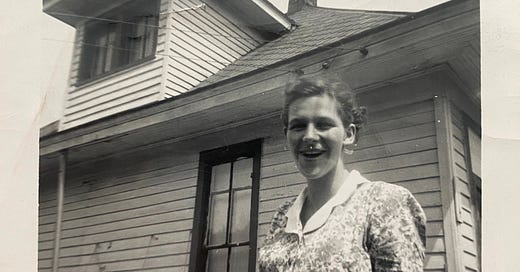



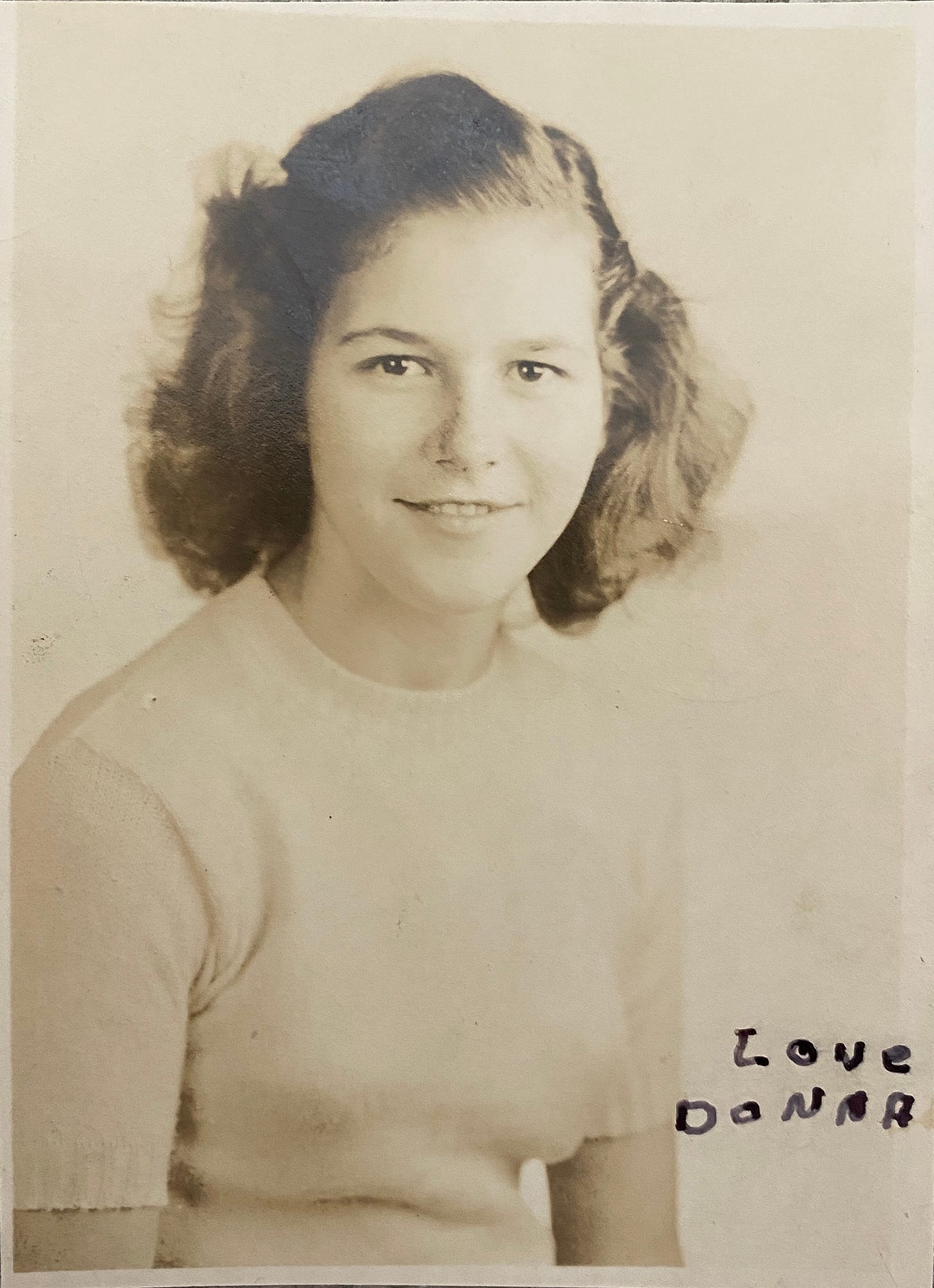
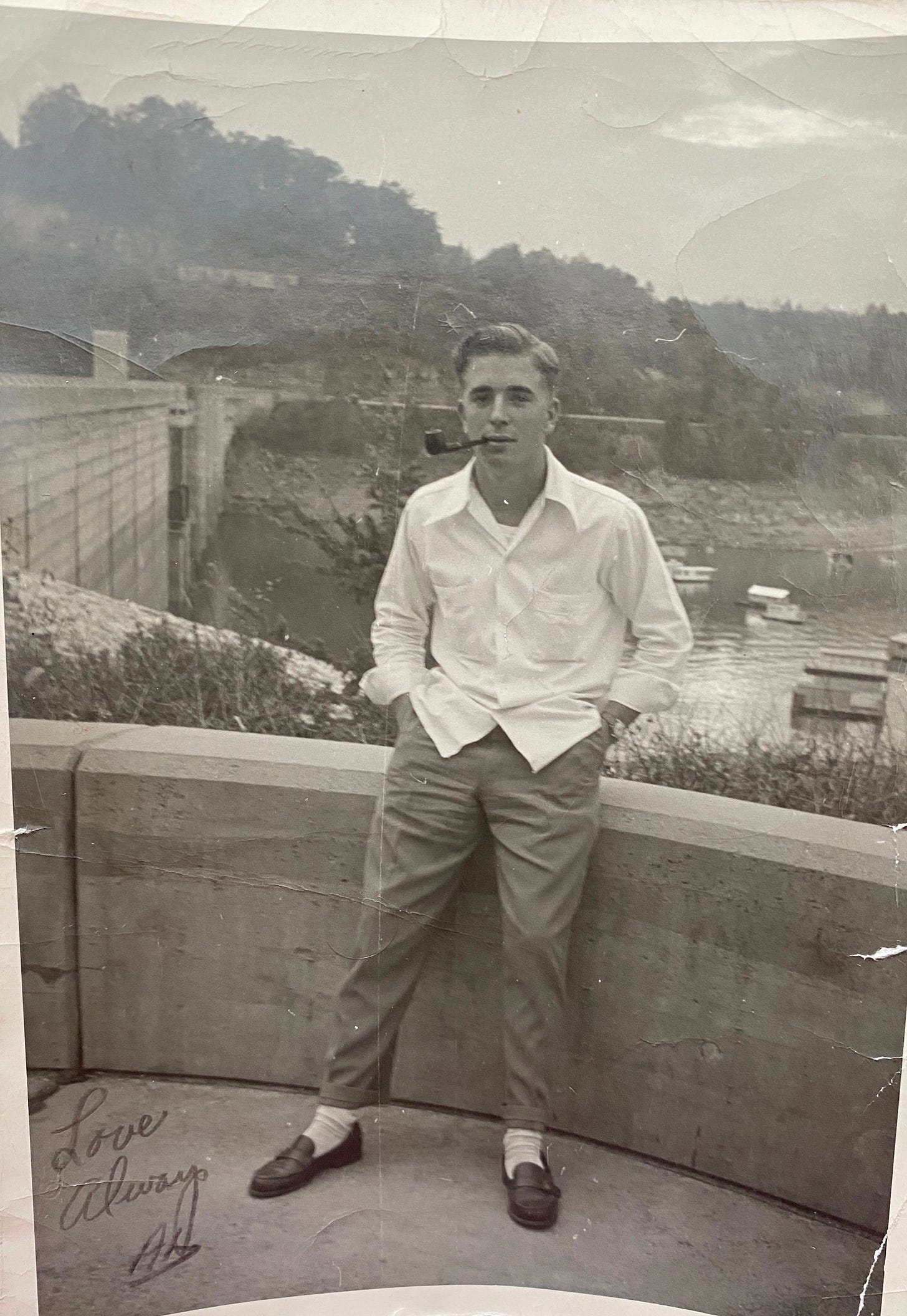
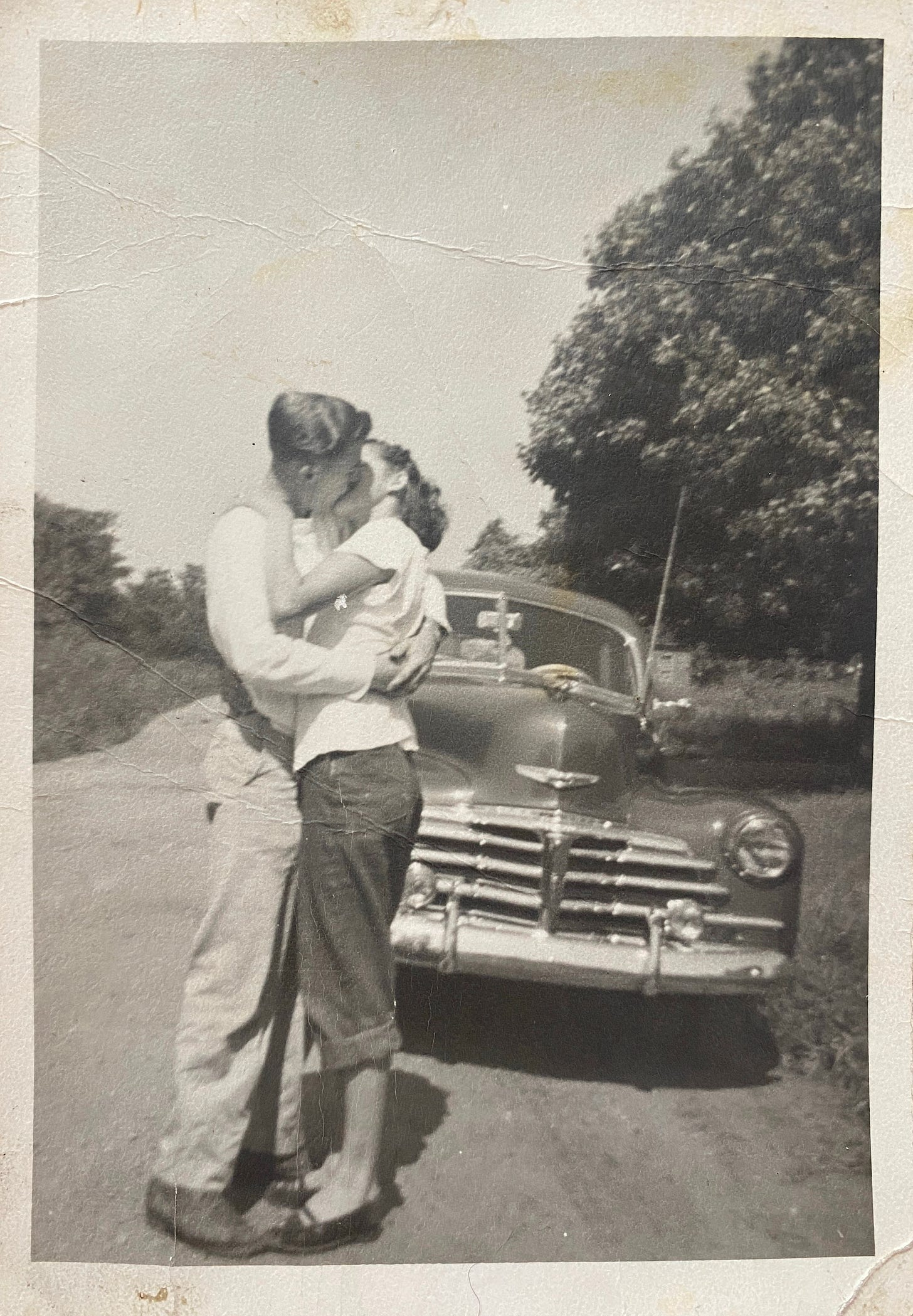
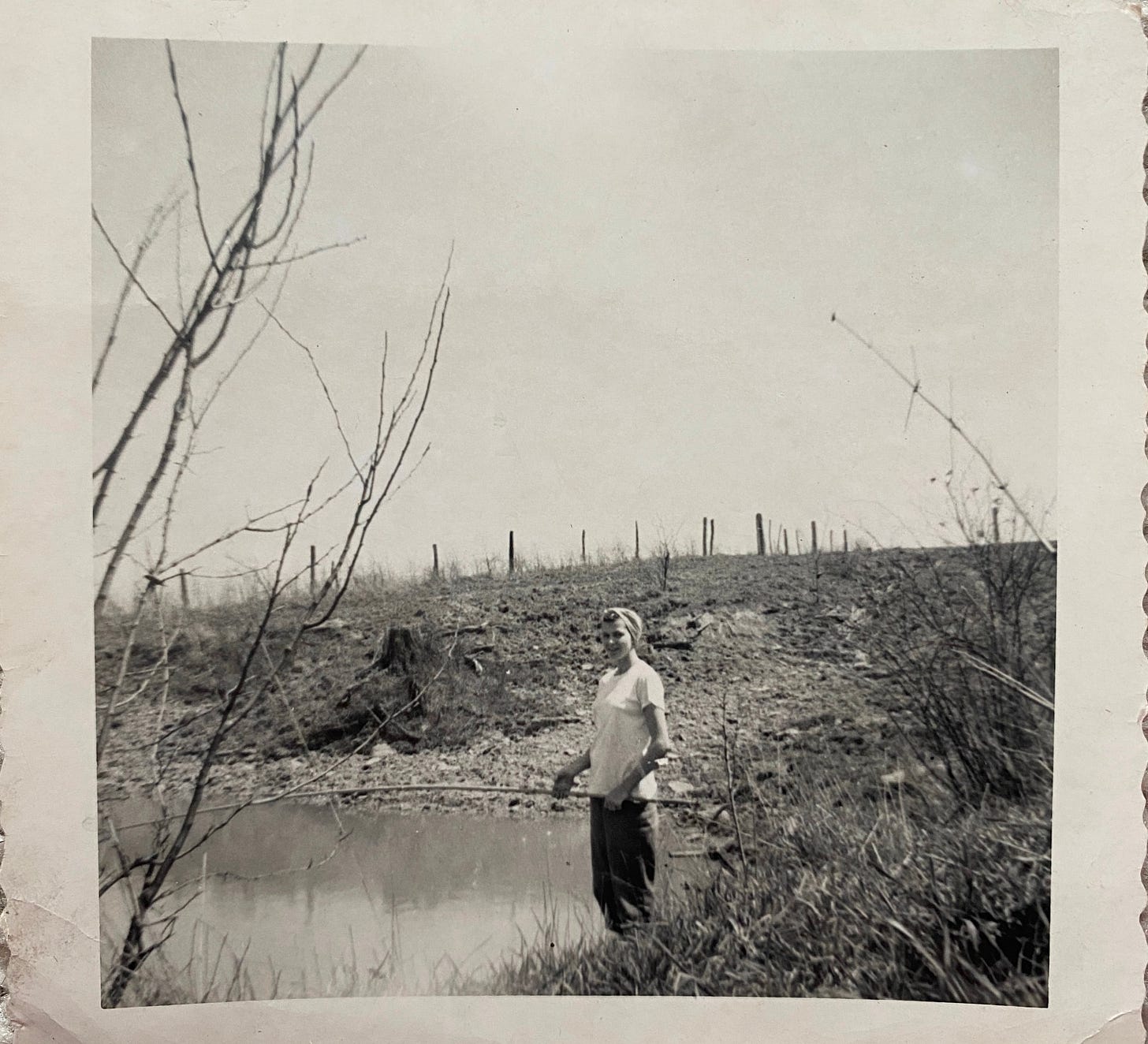
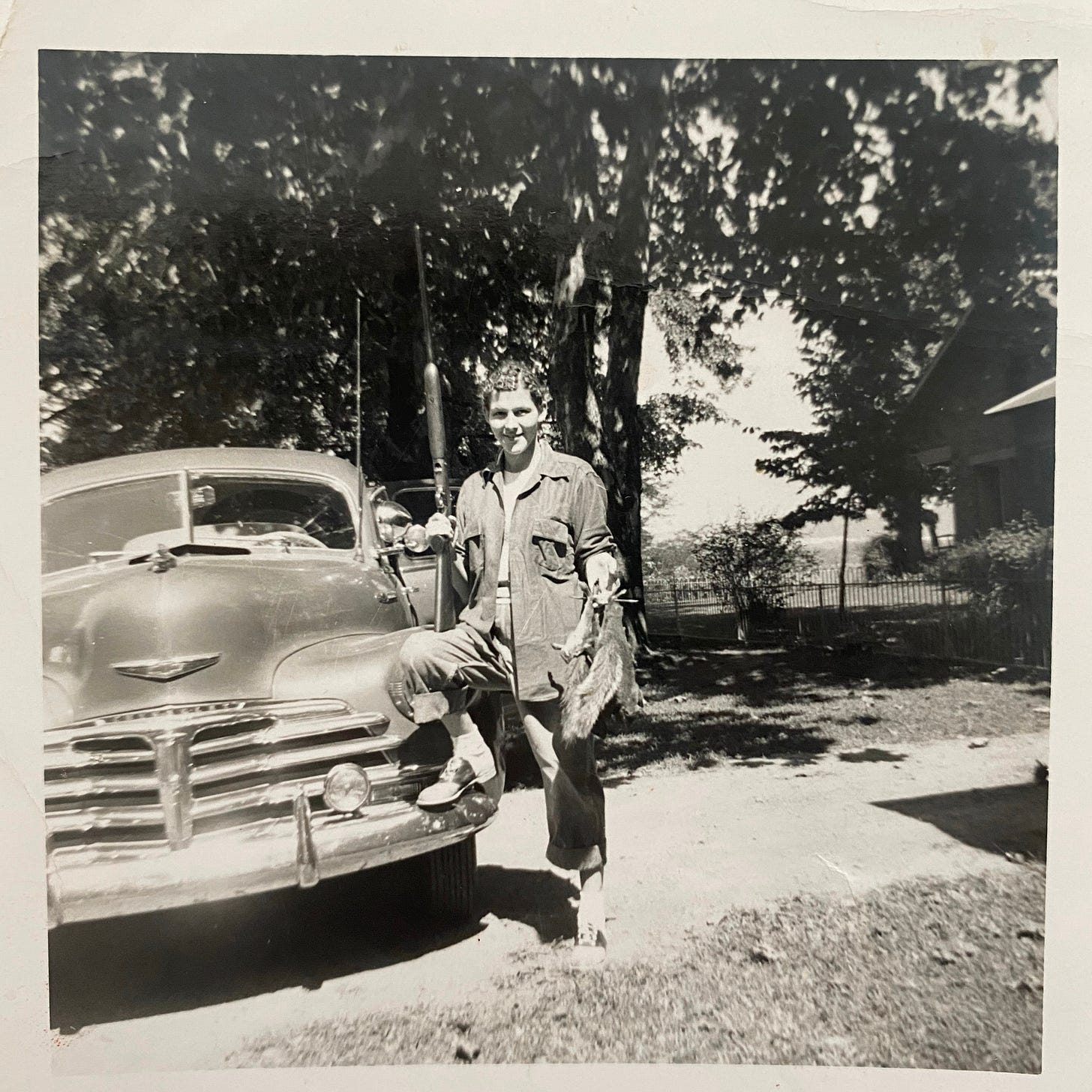
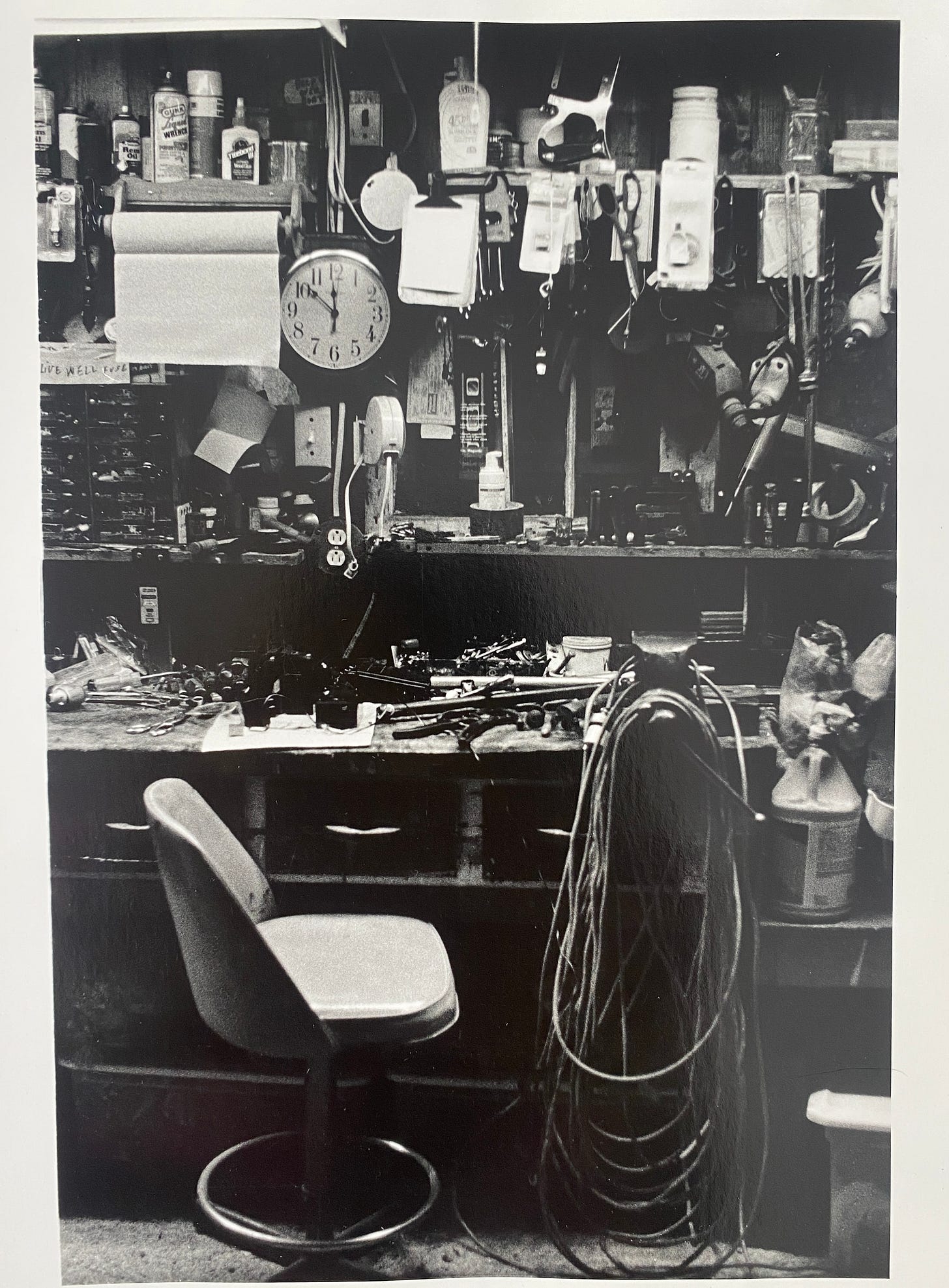
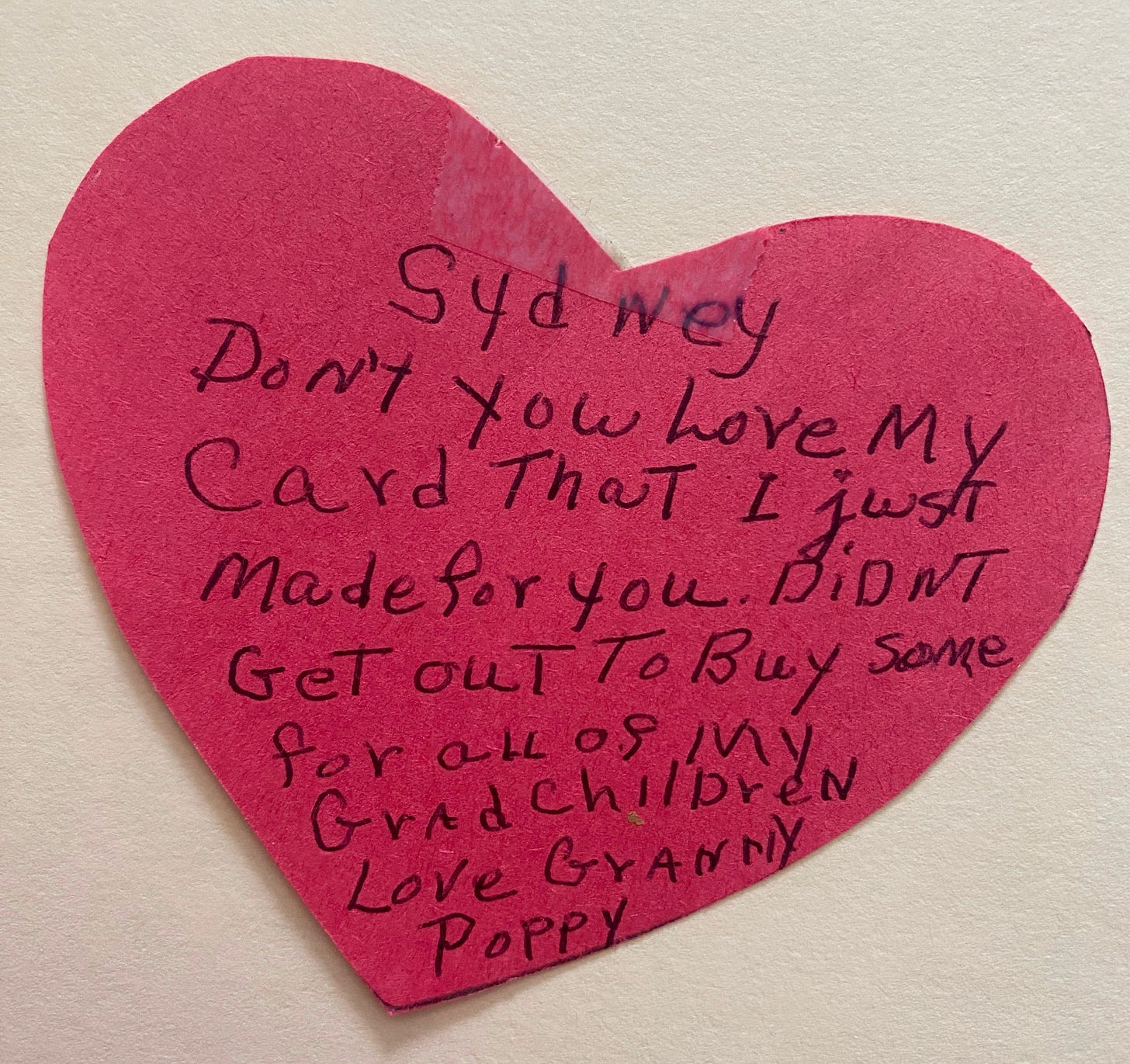
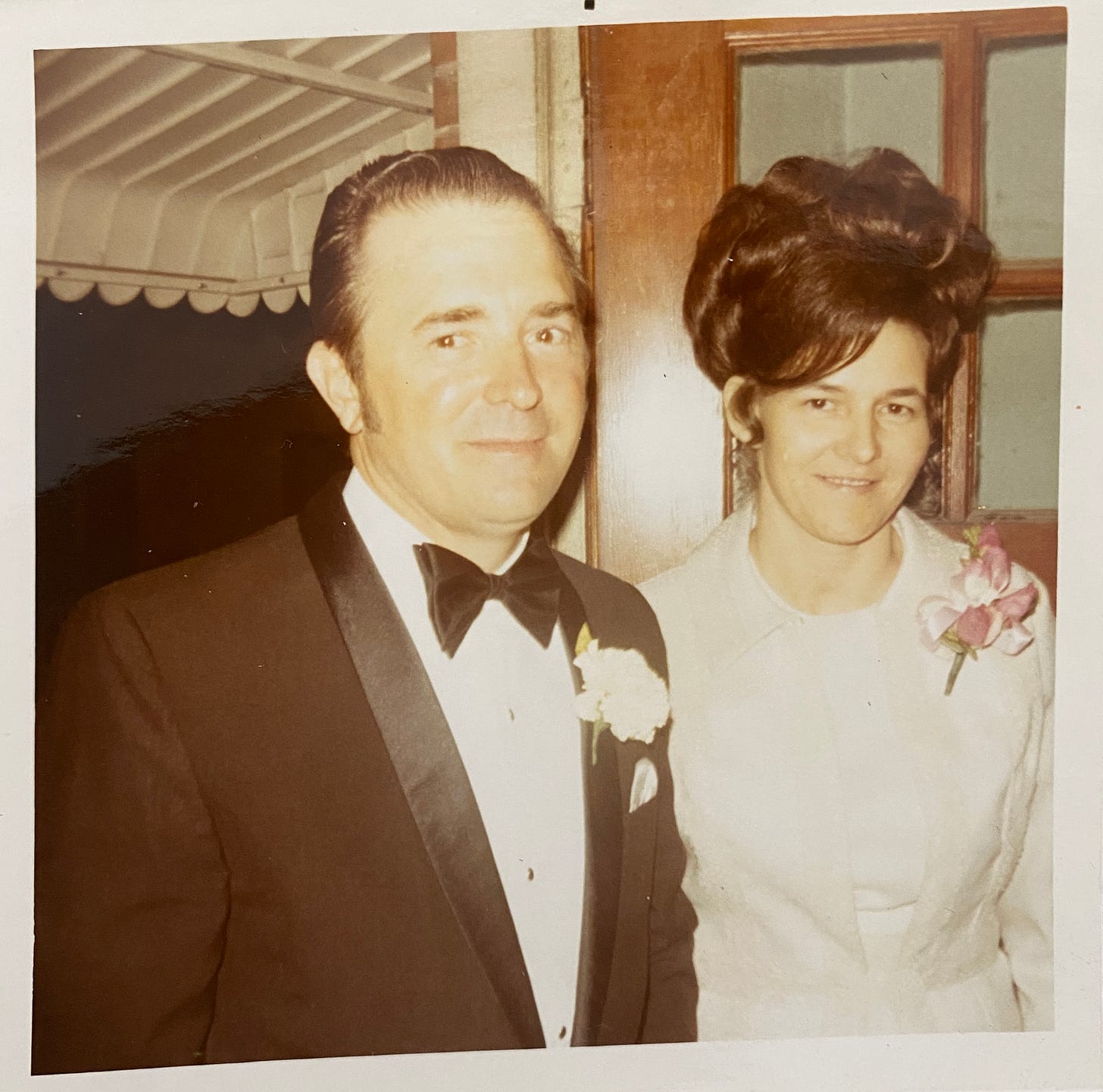
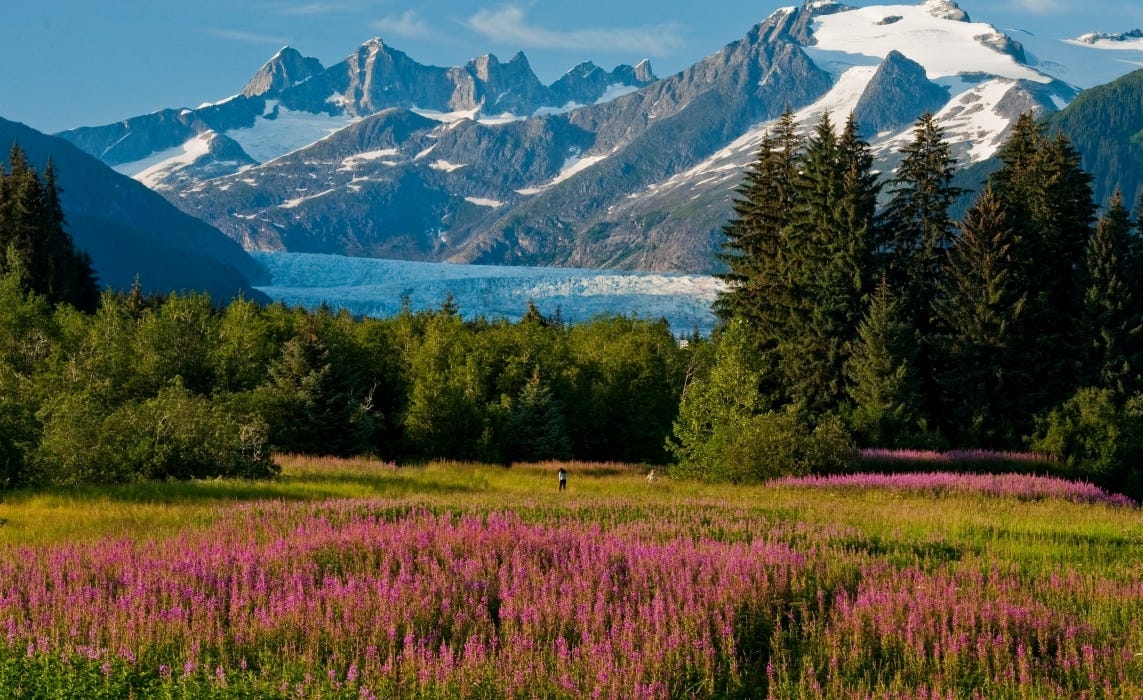
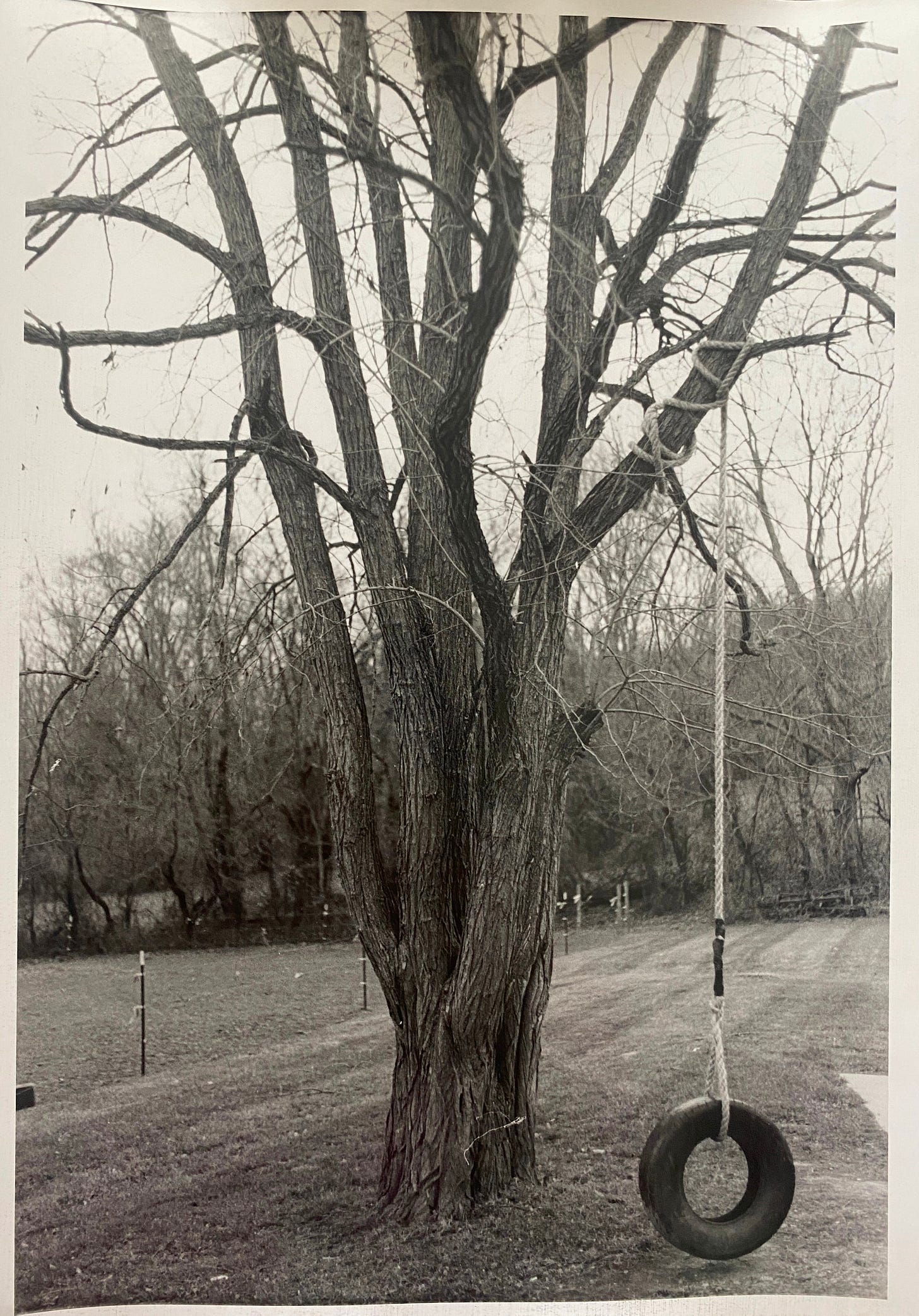

Beautiful
Wow wow Sydney this was such an amazing read! So well-written and what a story you've got - sending you lots of love here from the other side of the world 🤍